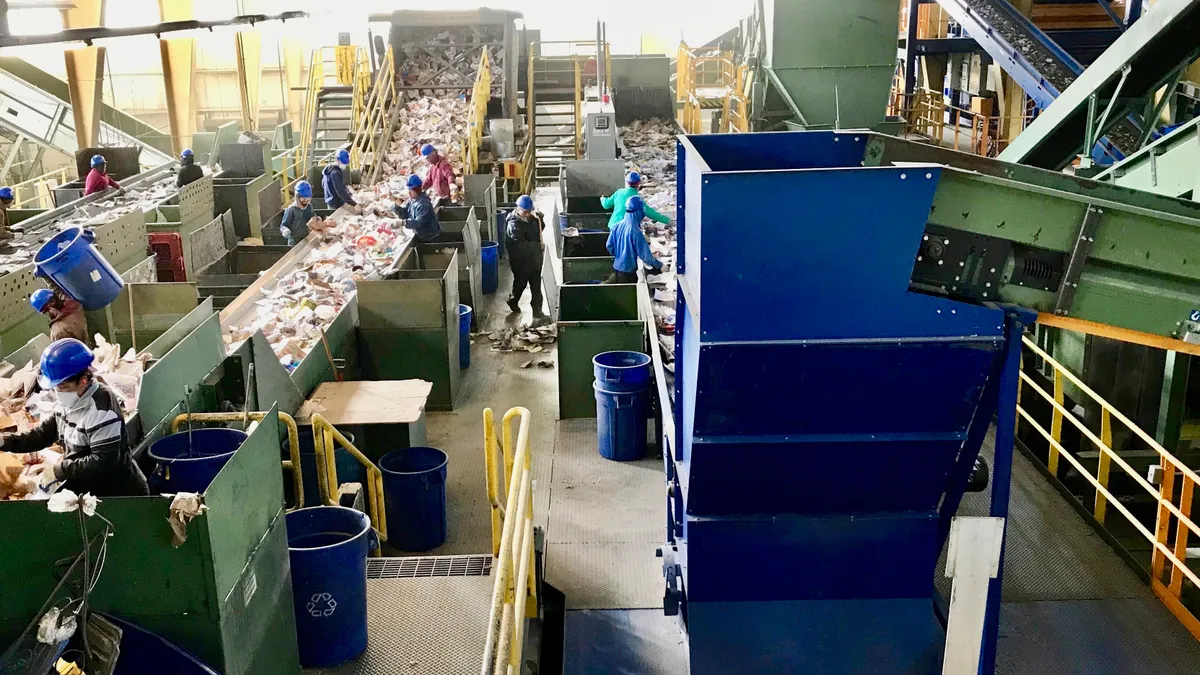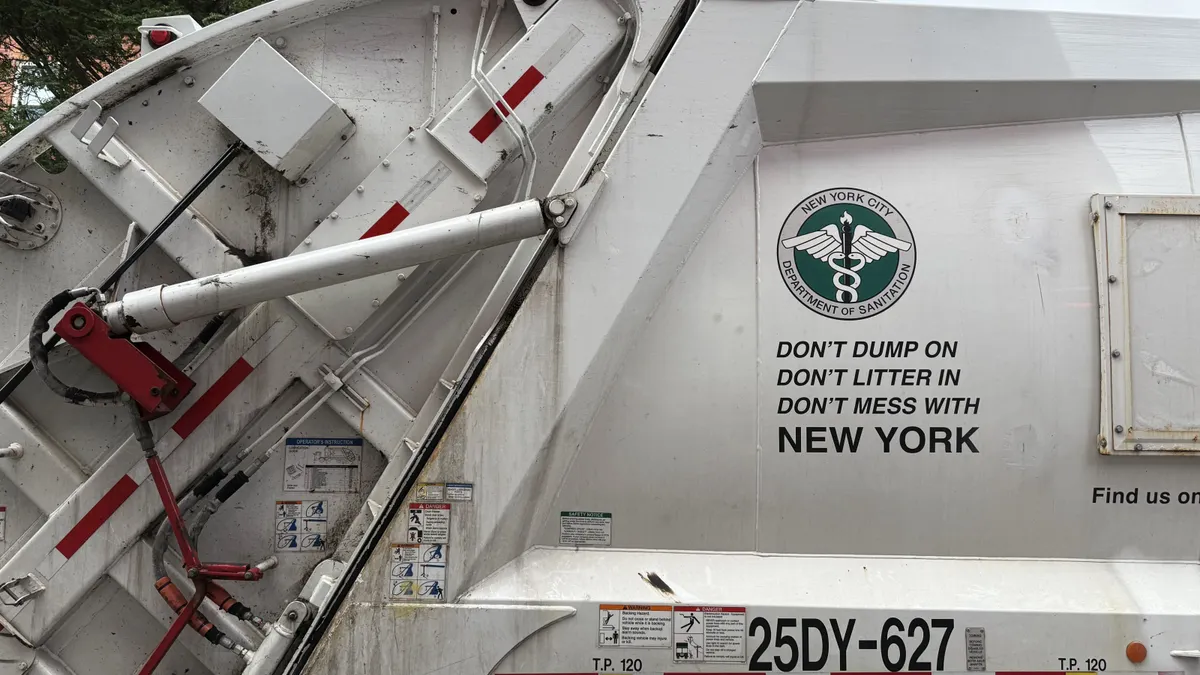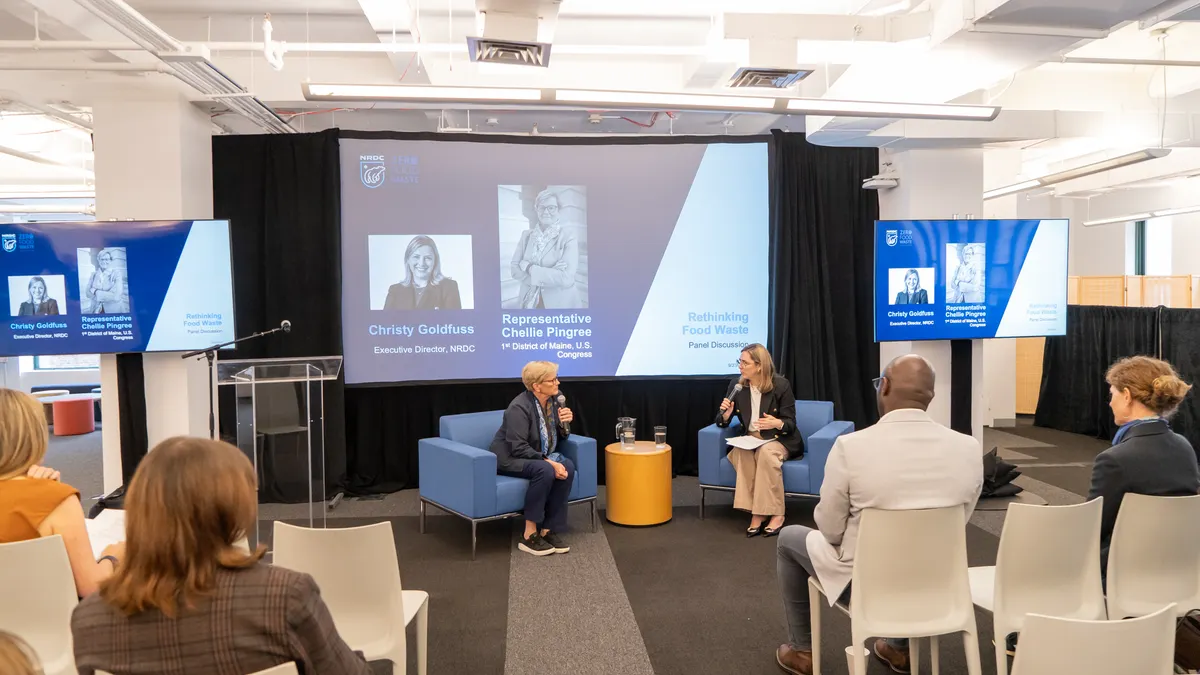Plastic marine pollution is a commonly-discussed topic in the waste management world as innovative organizations have attempted cleanup solutions from waste-eating drones to water wheels. Companies like Covanta have engaged in initiatives to turn marine debris and old fishing gear into clean energy, and even cities and municipalities have launched waste-reduction initiatives — like plastic bag fees — to help support river cleanups and keep plastic out of waters.
While all of these efforts are admired by many waste industry professionals and consumers, they don’t always get the recognition they deserve. Additionally, pollution issues can go somewhat uncovered by the mainstream media, causing communities to be unaware of how much plastic pollution is truly affecting their world.
To vocalize these pollution problems to a larger audience, President Barack Obama, actors and environmentalists Leonardo DiCaprio and Adrian Grenier, and other high-profile changemakers from around the globe spoke out against pollution last week at the third annual Our Ocean Conference hosted by Secretary John Kerry.
Their speeches gave mainstream media outlets like The Washington Post and CNN an opportunity to highlight these issues and garner more awareness — and gave stakeholders the opportunity to stand up and make a difference.
.@LeoDiCaprio has arrived with @JohnKerry! #OurOcean pic.twitter.com/lilnU23i58
— Kristin Musulin (@WasteDiva) September 15, 2016
"Our conservation efforts and our obligations to combat climate change, in fact, go hand in hand because marine areas already have enough to worry about ... like those patches of plastic waste floating in the Pacific and the invisible pollutants like carbon that we cannot see," said President Obama in his address. "The more of those threats that we eliminate through conservation, the more resilient those ecosystems will be to the consequences of climate change."
As attendees entered Our Ocean, they passed by two large art pieces that resembled fish — each comprised of trash.
"All of the plastic on this sculpture was collected from beaches by volunteers," read the sign describing one of the pieces that emulated a shark. Bottle caps, flip flops, disposable lighters, toy shovels, shot gun shells and other debris all were disguised the shark’s figure, which was colorful and inviting at a quick glance.
While the conference focused on key marine issues including climate change and ocean pollution, it also highlighted how the Earth’s oceans share the same allure as the art pieces: seemingly beautiful from afar, yet filled with destructive amounts of pollution. 8 million metric tons of plastic trash enters the sea every year, causing harm to wildlife, humans and the overall environment. Additionally more than 400 dead zones — areas of the ocean where life cannot exist due to the excessive amount of nitrogen pollution — have gradually populated across the globe.
"If we’re going to save our oceans from the scourge of plastic pollution, it will require leadership from all of you," said Tim Silverwood, CEO of Take 3, to the conference attendees consisting of presidents, ministers and well-known public figures. "We don’t need Band-Aid solutions. We need genuine, proven long-term solutions."
Identifying the meaning of 'marine pollution'
During a session titled "Stemming the Tide of Ocean Pollution," six stakeholders from around the world educated the audience on what marine pollution actually looks like — and how it became such an enormous problem.
"The mismanagement of our waste has come back to haunt us," explained Dr. Chelsea Rochman, assistant professor at the University of Toronto. Her short presentation described how beaches, open oceans, coral reefs, seagrass habitats, the deep sea and even arctic ice are all being affected by plastics, chemicals, metals and pesticides.
"My own research has found that if I simply go to fish markets in both the United States and Indonesia, I find debris in one in four fish in both locations," Dr. Rochman continued. She pointed out that plastics are not only ingested by animals, but the chemicals within those plastics can be transferred to wildlife, affecting both fish and seabirds. She also explained that plastic pollution not only has negative effects on marine economies, but also has psychological effects on humans as an eyesore.
Rob Kaplan, managing director of Closed Loop Fund, also took the stage to discuss how plastics and other pollutants ended up in the water to begin with. He explained that billions of dollars worth of materials are thrown away every day — either into waste streams or littered — instead of going into recycling streams.
"We're currently, in this country, spending billions to throw away billions," he said.
Closed Loop Fund looks at the collection, processing, material design and product design of recyclables and offers loans to enhance materials recovery facilities in order to keep these recyclables out of the open environment. And while Kaplan has touted the success of Closed Loop Fund, he noted that more needs to be done.
"This is a system problem and it requires a system solution. Solving for just plastics will set us up for failure. You need integrated waste management to get all of this material — whether it’s organic or paper or glass — out of the system and into recycling streams," he said. "And the path to scale is profitability. We need industry and markets available so that recyclers and municipalities can make money recycling. That’s the only way we’ll get the conventional and institutional investment to build this infrastructure around the world."
Committing to change
A shared stance at Our Ocean was that talk is cheap, but commitments for change actually signify progress. Therefore, after the completion of the pollution session, dozens of leaders from around the globe stood up to offer the commitments that their respective countries will make toward the fight against marine pollution — totaling over one billion dollars.
Dow Chemical Company, a leader in plastic packaging, announced a $2.8 million commitment over the next two years to support waste management pilot programs, educational programs and research by the Ellen MacArthur Foundation. As one of the only for-profit companies to offer such a commitment at the event, the company acted as a role model for other companies to follow suit in the future.
Other commitment highlights included:
- Panama announced $847 million to expand its "Panama City and Panama Bay Clean-Up Project”
- Germany announced approximately $112 million for development aid projects in the field of marine protection.
- Lebanon announced that it allocated $25 million to transform a coastal dump into a garden to restore the ecosystem and prevent marine debris and pollution from entering the sea.
- The Ellen MacArthur Foundation announced a $10 million three-year New Plastics Economy initiative.
- France announced that it has banned all single-use plastic bags thinner than .05 millimeters. Additionally, France announced that France, Morocco, and Monaco have launched an international coalition to ban single-use plastic bags.
- The Global Environment Facility announced $500,000 for marine plastic programs.
- UN Environment announced $6 million over the next two years for global and regional marine litter work.
- Ocean Conservancy announced a commitment to raise an additional $2.75 million to design a fund to pool resources to support waste management improvements in the Asia Pacific.
- The University of Georgia announced a $2 million grant to its New Materials Institute and Center for Circular Materials Management.
- The United States announced its intention to issue four grants totaling $1 million to fund projects to reduce nutrient pollution in the Caribbean and marine debris in Southeast Asia.
- Tulane University announced the international Nitrogen Reduction Challenge, which will award $1 million to the most effective solution proven to reduce marine nutrient pollution.
- The European Union announced that it will launch a targeted strategy on plastics to stop plastic and microplastics from contaminating the marine and coastal environment.
Additional commitments were announced from 5 Gyres, Think Beyond Plastic, Peru, Chile, The National Fisheries Society of Chile, Sri Lanka, Uruguay, Mauritius, Lebanon, Costa Rica, Monaco, Tunisia, Norway, Ghana, and Senegal. The full list of commitments toward marine pollution and other ocean conservancy focuses can be found at the Our Ocean website.

















